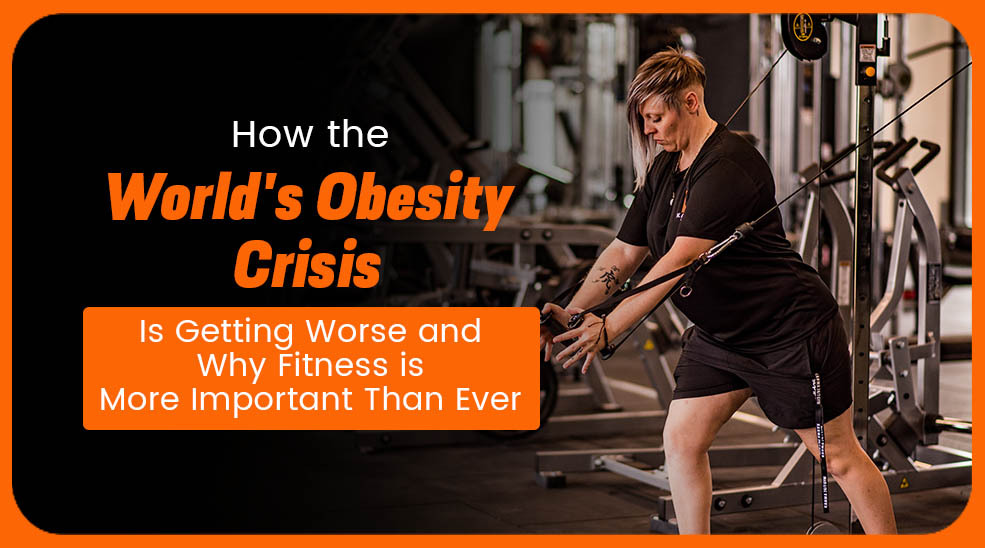ALWAYS OPEN! WE WORK 24/7

Obesity is now an epidemic across entire populations, not just a few countries or people. It drains health care systems, it devastates economies, and it costs billions. It happens to be getting worse, as more adults and children than ever are living with obesity, and this epidemic is driven by changes in food production, physical activity and the environment. The encouraging news is, fitness – sensible and sustainable exercise programs – is part of the story of prevention, treatment and long-term wellness to date. We will highlight what has changed, why it matters, and what fitness businesses and people can do to get involved.
Latest global reviews reveal that obesity has risen in almost every region of the world. In 2022, over one billion adults lived with obesity — and rates have increased exponentially since 1990. Projections indicate the number affected will continue to increase through this decade unless action is taken. That translates to more individuals with a greater risk of heart disease, diabetes and countless other chronic diseases.
This epidemic is not only a health crisis — it’s an economic one too. The global economic cost of overweight and obesity has been estimated to run into the trillions of dollars over the next few decades, through increased healthcare expenditure and lost productivity. Addressing obesity is thus both a matter of health and economic imperative.
There is no one reason. The increase in obesity is due to numerous alterations in the way we live, work and eat. There are two stand-out factors:
1. Shifting food environment: Ultra-processed foods — convenient, highly marketed products with high calorie and low nutrient content — are a key driver of excess calorie consumption worldwide. New controlled trials and reviews increasingly attribute weight gain and increased chronic-disease risk to ultra-processed diets. Reducing the overconsumption of these foods is a focus in slowing obesity.
2. Difficult lifestyle changes: Sedentary work, urban design that promotes minimal walking, prolonged work times, increased screen time, and inequitable access to safe opportunities to be physically active are all causing many of us to be less active and gain weight over time. Diet is often the cause of weight gain but physical activity is an important part of metabolic function, body composition and sustained weight.
Exercise is not a magic pill for losing weight, but it does count — big time — for health and lasting change.
Come to activities or groups — accountability and social support are important.
The obesity crisis is a global one: food systems, urban environments, economics and culture all contribute. Fitness alone will not be enough to turn the tide — but it is an evidence-based, cost-neutral, and scalable component of the solution. When policy makers, health services, community groups, and gyms collaborate — providing active access, realistic support for nutrition, and enabling environments — we can curve the problem.
If you live in Clyde North and would like help in making a healthy fitness program, Kahma 24/7 Gym Clyde North can provide plenty of classes, all to help improve health, including functional training and supervised sessions, to build sustainable habits. Small changes, or steps to start add up — if you would prefer, we can help you make a plan that is realistic for your life. How to make it in Clyde North.